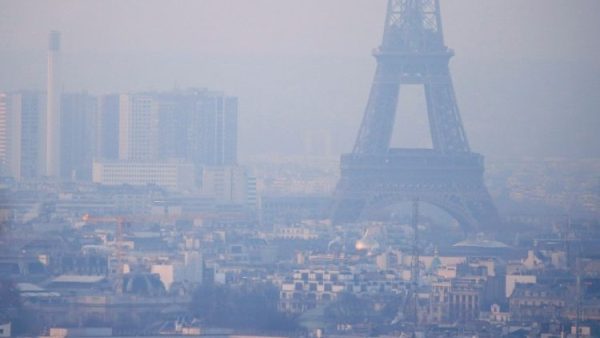WHO: Air pollution threat to health and climate
 The World Health Organisation (WHO) issues new air quality guidelines calling on its 194 member states to slash the recommended maximum levels for several pollutants, including nitrogen dioxide, both of which are found in fossil fuel emissions.
The World Health Organisation (WHO) issues new air quality guidelines calling on its 194 member states to slash the recommended maximum levels for several pollutants, including nitrogen dioxide, both of which are found in fossil fuel emissions.
Air pollution is a serious threat to climate and health: That’s the verdict of the World Health Organisation (WHO) who on Wednesday issued its first air quality guidelines since 2005, ahead of the COP26 climate change conference in Glasgow.
The UN agency noted that an estimated 7 million people die prematurely every year due to diseases linked to air pollution, such as lung cancer, heart disease, and stroke.
"This puts the burden of disease attributable to air pollution on a par with other major global health risks such as unhealthy diet and tobacco smoking," the agency said.
Action needed
Ahead of the COP26 conference in November, the WHO is calling on its 194 member states to slash the recommended maximum levels for several pollutants, including nitrogen dioxide, both of which are found in fossil fuel emissions.
Speaking about the guidelines WHO Director-General Tedros Adhanom Ghebreyesus told a news conference, that over the last 16 years "a substantial new body of evidence has accumulated, further demonstrating the degree to which air pollution affects all parts of the body from the brain to a growing baby in a mother's womb at even lower concentrations than previously observed."
He also urged governments to cut emissions and take action on climate change.
People living in low and middle-income countries suffer the most due to urbanisation and economic development heavily reliant on burning fossil fuels.
Guidelines aim to reduce deaths
María Neira, WHO director of environment, climate change, and health, said the guidelines were about reducing deaths from key pollutants that cause cardiovascular and respiratory diseases by moving to "renewable and clean sources of energy."
The new air quality guidelines advised halving the recommended limits for average annual PM2.5 particles from 10 micrograms per cubic meter to 5.
These particles are produced mainly by fuel combustion in sectors including transport, energy, households, industry, and agriculture.
The World Health Organisation also said that "Almost 80% of deaths related to PM2.5 could be avoided in the world if the current air pollution levels were reduced to those proposed in the updated guideline."
Vatican News staff reporter
Source: .vaticannews.va

